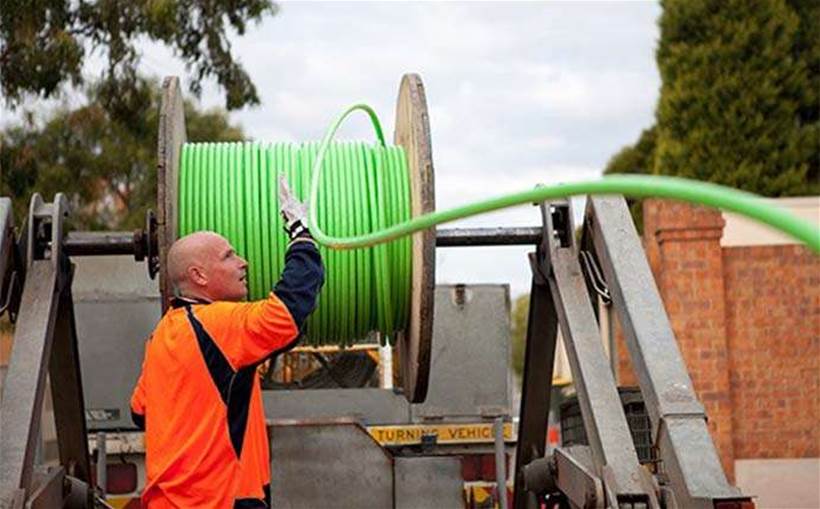The ongoing politicisation of the NBN is a “tragedy” that is holding Australia back from becoming a frontrunner on innovation, according to Innovation Clearinghouse founder Sandy Plunkett.
Appearing on the ABC’s Q&A program on innovation, Plunkett and fellow entrepreneur, Emergent Solutions CEO Holly Ransom, decried the political response to the NBN for holding the project back.
“It was politicised at the beginning and it’s been politicised at the end, and that is just such a tragedy for Australia and it actually sets us back,” Plunkett said.
Plunkett saw the ongoing politicking as a hurdle to imagining “what you will do with this thing if you build it.”
“We're stuck with [a discussion of] bits and bytes and speeds, rather than helping people and businesses imagine what they would do with [NBN],” she said.
Ransom agreed, calling the NBN a “frustrating issue” in part because of the policy responses to the project’s evolution.
“I think part of the frustration right now is we got burnt on the initial approach,” Ransom said.
“Some of the rollout didn't work very well. That conversation hasn't really evolved.
“We didn't see it as [a] sunk cost and how do we still deliver this really critical infrastructure objective that’s going to underpin our economy in the future.
“Instead we went, ‘Oh, let's go for the kind of safer objective, because it’s going to be more politically palatable, it’s going to be less front page headlines’.
“And [now] we haven't delivered an outcome that really serves Australians and gives us the level of internet broadband speed and reach that we need.”
Ransom believed the NBN conversation should be aimed at creating infrastructure to underpin overarching goals and objectives for Australia over the next three decades.
“If that's the focus, then we view things like the NBN in a different perspective because that huge investment which we know we’re going to have to make is part of building a productive economy,” Ransom said.
“We view it in a different light.”
Ransom criticised the two major parties for continuing to blame each other for the NBN’s perceived misgivings instead of working together on a bipartisan platform to further Australia’s interests.
The Q&A program briefly became a platform for that blaming to continue as Assistant Minister for Innovation Wyatt Roy and the shadow parliamentary secretary assisting with digital innovation and startups Ed Husic addressed a question on why NBN wasn’t being pushed to underpin the present focus on innovation and ideas.
Roy argued that it wasn’t much point promising “a great internet connection but [asking Australians] can you wait six years for it to be rolled out”.
He also attacked the original NBN design, saying that “you wouldn't roll it out the way that it’s been done.”
Husic responded that “we’re going to have an ideas boom after we get through the buffering”, and criticised the Government for going to an election not “talking about the things people really want to see done”.
The to-ing and fro-ing prompted comments from Plunkett and Ransom, as well as from quantum physicist and University of Sydney Associate Professor Michael Biercuk, who was also on the panel.
“Really the debate is about how much the Government wants to invest public dollars in building infrastructure. It ignores the multiplier effect of investing in infrastructure because that's a complicated argument to make,” Biercuk said.
“It’s time to start demanding an honest conversation among politics. It is not about who delivered it on time or under budget because nobody does. It is always more expensive than we expect.
“It will be a lot of money but if the population values it and we say that, then this debate will stop.”









